Sustainability and addressing climate change: it’s the number one vital discussion topic these days. From governments to intergovernmental organizations, politicians to students, volunteers to NGOs – everybody is placing higher and higher priorities on this issue. In parallel, equally rapid progress and innovations in technology are revealing new opportunities on a daily basis to address these problems and improve the current state of planet Earth.
Mathias Wikström, CEO of Doconomy, and Johan Pihl, Doconomy’s founder and Head of Innovation & Founder are two people who share the desire to help our planet. They have a powerful vision: to give both consumers and businesses the digital tools that they need to understand and reduce the environmental impact of their consumption. This led to Doconomy launching the Black Card in 2019 – the first credit card to limit spending not on available credit, but on the levels of CO2 emission caused by the owner’s purchases. How does it work – and what are their next steps?
“The insight is that everything you buy has an impact on the planet and you need to understand the impact and carbon footprint linked to your consumption, to make more informed purchase decisions over time,” – Johan Pihl
How do they want to achieve a more sustainable planet?
Reshaping how credit cards are being used (limiting purchases based on CO2 emissions) is a radical step forward; but Doconomy is taking its vision even further by also developing and sharing a 2030 Calculator that allows anyone to assess the environmental impact of their spending.
“It’s not a typical business model; it is purpose-driven. Addressing climate change is a huge undertaking and requires a multitude of companies, brands, and governments coming together.” – Johan Pihl
Real change can come only through rewiring the infrastructure
“You need to be in the infrastructure in order to direct it elsewhere. And the infrastructure consists of many stakeholders and brands, they are key components and drivers in that change.” – Mathias Wikström
The success they didn’t expect
“What’s astonishing is that, honestly, we couldn’t imagine the type of response we are getting. We’re having companies from all around the world calling in, not only using the calculator but interested in co-creating an even bigger, stronger platform.” – Johan Pihl
What’s next?
Currently, the 2030 Calculator sorts data related to transactions into different categories, which put a carbon score on every transaction the customer makes. Based on that, it calculates the overall CO2 emissions “purchased” by the customer.
“The next level, of course, would be to connect the individual company’s carbon score to the very transaction at that specific company – which is product development. And the third layer would be to then calculate the carbon footprint for products, the line item data on the receipts. However, then we’re entering another data stream,” says Mathias Wikström.
Doconomy managed to actually create an entirely new market – an incredible feat. But how did it do it?
Would you like to find out for yourself how the 2030 Calculator works, and what it means for them to truly change the infrastructure – and how the cooperation with Vacuumlabs looked like? Then sit back, relax and listen to our podcast episode:
————
‘Banking on Air’ is the official Vacuumlabs podcast covering the challenges, opportunities, perspectives and opinions that matter to you and to our community. In this podcast, we are looking under the hood of the changing face of tech: the acceleration in all things digital, the impact of regulation (and disruption), the need for genuine collaboration – and the specter of competitors old and new as it plays out in fintech and financial services around the world.
We’re making this series so we can share our experience and expertise in creating solutions for the digital journey for incumbents, community banks, and fintechs. We believe that the future is in communities when it comes to digital transformation in financial services, and we’ll be sharing our thoughts with you, but also getting your together with our guests.
This episode was hosted by Marcel Klimo from Vacuumlabs. Listen to the original podcast episode on Apple Podcasts, Breaker, Google Podcasts, Overcast, Pocket Casts, Spotify, or here:
And don’t forget to subscribe!








